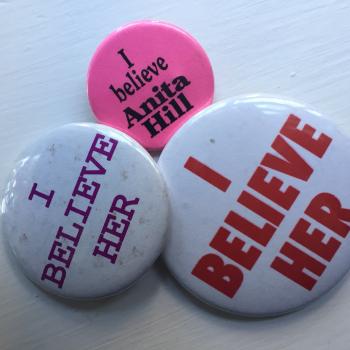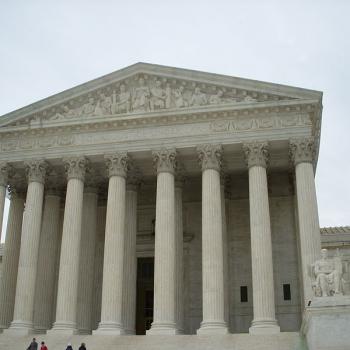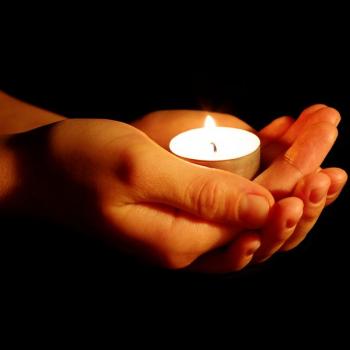
For most of my adult life, I have encountered a lot of progressive and mainline Christians who are reticent about “admitting” they are Christian in their workplaces or in other secular spaces. Sometimes they refer to themselves as “closet” Christians.
This attitude is even more pronounced on college campuses than in the general public. The current generation of college students, known as the millennial generation, has generated a new classification known as the “NONES.” These are the folks who check “none” on the form when asked to describe their religious affiliation.
A Pew Forum study in 2010 showed that 25% of 18-29 year olds identified as “unaffiliated,” though only 7% of those young people identified as atheist or agnostic. Many in the other 18% also often refer to themselves as “spiritual but not religious.”
As a Christian ethicist teaching in a Religious Studies department, I run into these kids all the time. Kids who were raised in mainline churches but are embarrassed by “popular” ideas about what it means to be a Christian. Or Catholic kids who are appalled by what they see as the hypocrisy of a church focused on policing sexuality while covering up the sexual abuse of priests.
Many of these young people understand themselves vaguely as Christians but they are turned off when they see Christians who ought to love their neighbor but who they see rejecting and denouncing people like them – for being gay, or queer, or feminist, or sexually active. Or, even more importantly for many of them – appalled by the lack of attention to the problems of human trafficking, or blatant racial discrimination, or poverty while obsessed with growing the church or building a new building or denouncing sexual minorities or shaming women for having abortions.
A couple of weeks ago the internet news media outlet BuzzFeed published a video on its YouTube “BuzzFeedYellow” channel that highlights an interesting and diverse group of young people finishing the phrase “I’m Christian, But I’m Not. . .” You can see it here:
I first found out about the video because it was being lambasted by bloggers who didn’t like the version of Christianity that was being presented by these young people. One blogger thought they didn’t focus enough on the fear of the Lord, another thought they didn’t focus enough of Jesus, and one right-wing outlet simply dismissed it as cultural pandering.
As someone who teaches millenials just like this, I thought the video was brilliant. For someone who is not keen on evangelicalism, I thought it was one of the most savvy pieces of Christian evangelism that I have seen in ages. Because, for me, the video did highlight the good news of Christianity.
First, it uses a medium that young people not only relate to but that they encounter on a daily basis. Whether we like it or not, social media is playing an increasing role in shaping cultural attitudes and cultural access to information. In less that two minutes, this video names and challenges significant stereotypes that are associated with Christianity.
Second, it offers a counter-cultural narrative about who Christians are and what it means to be a Christian that might just appeal to young people who are turned off by the dominant version of Christianity that they see in the media. In this way it taps into the cultural zeitgeist of many people in the millennial generation (and beyond) who are disenchanted with organized religion and their perceptions of its failings.
Instead of lambasting it for not offering a deeper understanding of Christianity (but seriously who turns to YouTube or BuzzFeed for in-depth theological reflection??), why not take a look at what these young people are saying about their identity as Christians and what Christianity means to them?
Many progressive and mainline Christians regard the depiction of Christianity in the mainstream media as far removed from our own understanding of what it means to claim Christianity and to live as Christians in the world. Despite the fact that I am an ordained Presbyterian minister (PCUSA), I often find myself choosing when, how, and if I will disclose my identity as a Christian.
As a college professor, I am not a Sunday School teacher in my college classroom. I do not witness to my students about what are “right” or “wrong” Christian beliefs. I teach them about the wide variety of beliefs and practices that various Christian communities have experienced and expressed throughout our 2000-year history. I also challenge their understanding of contemporary Christianity as reduced to a conservative evangelical version, or an orthodox Roman Catholic version, or a Westboro Baptist version. We study the wide variety of Christianities that are part of the lived experience of Christians in the 21st century.
However, as a Presbyterian minister and a progressive Christian ethicist, when the young people on the video affirmed that they are Christian but not homophobic, perfect, close-minded, unaccepting, uneducated, judgmental, conservative, and ignorant – I found myself cheering “Right on!”
And when the screen flashed the provocative question “What are you?” simultaneously asking the viewer as well as the young people on screen to think about how they self-identify, I felt at home with brother and sister Christians on the video as they claimed their identities as accepting, queer, gay, feminist, believers of science, drinkers of wine, proponents of monogamy before sex and Sunday church goers.
This video was an invitation to learning more about progressive Christianity.
Christianity is not monolithic. My interest as a progressive Christian is not to claim the moral high ground but to witness to the fact that Christianity can be lived faithfully as a pro-choice, intersectional-feminist who is committed to fighting racism, misogyny, homophobia and other cultural attitudes that disrespect and destroy people’s lives. And to participate in the radical social transformation of our world so that the structures of our society attend to the needs and realities of the “least of these” in our midst, whoever they are, and wherever we find them.
















